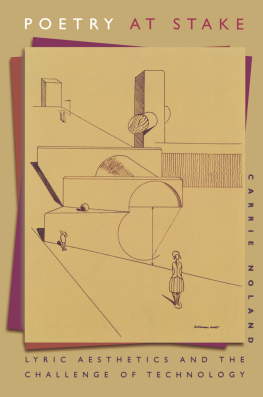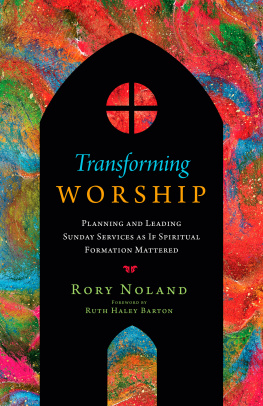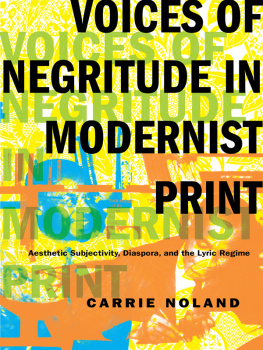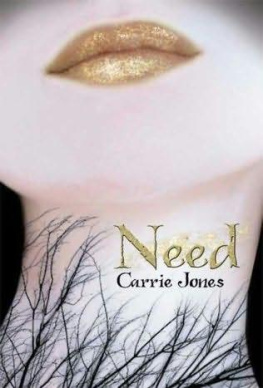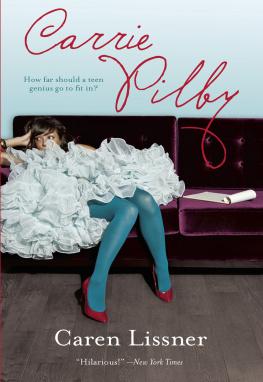Carrie Noland - Poetry at Stake
Here you can read online Carrie Noland - Poetry at Stake full text of the book (entire story) in english for free. Download pdf and epub, get meaning, cover and reviews about this ebook. year: 2021, publisher: Princeton UP, genre: Art. Description of the work, (preface) as well as reviews are available. Best literature library LitArk.com created for fans of good reading and offers a wide selection of genres:
Romance novel
Science fiction
Adventure
Detective
Science
History
Home and family
Prose
Art
Politics
Computer
Non-fiction
Religion
Business
Children
Humor
Choose a favorite category and find really read worthwhile books. Enjoy immersion in the world of imagination, feel the emotions of the characters or learn something new for yourself, make an fascinating discovery.
- Book:Poetry at Stake
- Author:
- Publisher:Princeton UP
- Genre:
- Year:2021
- Rating:5 / 5
- Favourites:Add to favourites
- Your mark:
- 100
- 1
- 2
- 3
- 4
- 5
Poetry at Stake: summary, description and annotation
We offer to read an annotation, description, summary or preface (depends on what the author of the book "Poetry at Stake" wrote himself). If you haven't found the necessary information about the book — write in the comments, we will try to find it.
Poetry at Stake — read online for free the complete book (whole text) full work
Below is the text of the book, divided by pages. System saving the place of the last page read, allows you to conveniently read the book "Poetry at Stake" online for free, without having to search again every time where you left off. Put a bookmark, and you can go to the page where you finished reading at any time.
Font size:
Interval:
Bookmark:

POETRY AT STAKE
POETRY AT STAKE
LYRIC AESTHETICS AND THE CHALLENGE
OF TECHNOLOGY
Carrie Noland
PRINCETON UNIVERSITY PRESS PRINCETON, NEW JERSEY
Copyright 1999 by Princeton University Press
Published by Princeton University Press, 41 William Street, Princeton, New Jersey 08540
In the United Kingdom: Princeton University Press, Chichester, West Sussex
All Rights Reserved
Library of Congress Cataloging-in-Publication Data
Noland, Carrie, 1958
Poetry at stake : lyric aesthetics and the challenge of technology / Carrie Noland.
p. cm.
Includes bibliographical references and index.
ISBN 0-691-00416-1 (cloth : alk. paper).ISBN 0-691-00417-X
eISBN 978-0-69122-754-2
(pbk. : alk. paper).
1. French poetry19th centuryHistory and criticism. 2. French poetry20th centuryHistory and criticism. 3. Lyric poetryHistory and criticism. 4. Literature and technologyUnited States. 5. Literature and technologyFrance. 6. Aesthetics, Modern. I. Title.
PQ433.N65 1999
841'.0409091dc21 99-25333
A section of appeared as Rimbaud and Patti Smith: Style as Social Deviance in Critical Inquiry 21, no. 3 (1995). 1995 by The University of Chicago Press. All rights reserved. Permission for republication has been granted.
R0
Youre walking... and you dont always realize
it but youre always falling. With each step...
you fall. You fall forward a short way and then
catch yourself. Over and over... you are falling
... and then catch yourself. You keep falling and
catching yourself falling. And this is how you are
walking and falling at the same time.
Laurie Anderson, Words in Reverse
In principle, philosophy can always go astray,
which is the sole reason why it can go forward.
Theodor W. Adorno, Negative Dialectics

To
The National Endowment for the Humanities, for a year-long Fellowship for University Teachers that allowed me to write large portions of this book;
The Columbia University Council of Humanities and the University of California, Irvine, School of Humanities, for awarding me a series of summer grants that permitted consultation of rare documents, manuscripts, and letters housed in the Fonds Robert Delaunay at the Bibliothque nationale and the Fonds Jacques Doucet at the Bibliothque Sainte-Genevive in Paris, the BBC Radio Written Archives in Reading, England, the Fonds Blaise Cendrars in Berne, Switzerland, the Muse de la Rsistance in Fontaine-la-Vaucluse, France, and the Visual Arts Library at the University of California, Santa Barbara;
Rene Riese Hubert, for facilitating research contacts in Europe and for her generous loan of rare books;
Miriam Cendrars and Mme. Ren Char, for granting me access to archival materials;
Aaron Noland, for providing the best research assistance a daughter could ever hope to have;
Marjorie Beale, for her invaluable intellectual comradery, her sense of discernment, and her faithful friendship;
Victoria Silver, for her well-placed constructive criticism and numerous stimulating conversations on Adorno;
Leslie Rabine and Richard Terdiman, for taking the time to read and comment insightfully on the entire manuscript;
Gerald Fetz, John Smith, and Mark Katz, for helping me to decipher Adornos German;
David Carroll and Ellen Burt, for the advice and support they offered during the many phases of this books preparation;
Frank Banton (United Nations International School), Arnold Weinstein, Edward Ahearn (Brown University), and Richard Sieburth (Harvard University), for the gift of their inspired teaching of poetry;
Barbara Johnson and Susan Suleiman (Harvard University), for nourishing my enthusiasms, challenging my boundaries, and disciplining my voice;
Bahamin Yazdanfar and Ganiat Alao, for providing excellent care to my children, Julian and Francesca, while I was occupied with such enthusiasms, boundaries, and disciplines;
Dorothy Noland, for exposing me at an early age to experimental art and for always getting me the best aesthetic instruction she could find;
and Christopher Beach, my soulmate and partner in poetic subversion, for manifesting a quality and magnitude of generosity that I may never fully repay.
Abbreviations__________________________
The following abbreviations are used for frequently cited texts:
| AT | Theodor W. Adorno. Aesthetic Theory. Translated by Robert Hullot-Kentor. Minneapolis: University of Minnesota Press, 1997. |
| Ill | Arthur Rimbaud. "Illuminations and Other Prose Poems. Translated by Louise Varese. Rev. ed. New York: New Directions, 1957. |
| MM | Theodor W. Adorno. Minima Moralia: Reflections from Damaged Life. Translated by E.F.N. Jephcott. London: Verso, 1996. |
| ND | Theodor W. Adorno. Negative Dialectics. Translated by E. B. Ashton. New York: Continuum, 1992. |
POETRY AT STAKE
Introduction_________________
Poetry at Stake: Lyric Aesthetics and the Challenge of Technology
NEARLY a century before performance poet Laurie Anderson released her CD-ROM Puppet Motel, the French poet Guillaume Apollinaire declared that poetic activity could indeed be pursued in more overtly commercial and industrial realms. At a time when the French avant-garde was by no means united in its estimation of mass cultural forms, Apollinaire openly encouraged poets to abandon the page in favor of modern transmission technologies, the same technologies that would eventually be deployed by performance poets such as Anderson. As early as 1917, Apollinaire predicted in LEsprit nouveau et les potes (Poets and the new spirit) that it would only be a matter of time before poets, more refined than the general public, would take hold of the means of production provided by the phonograph or the cinematic apparatus in order to apply them to the ends of subjective expression. He zealously envisioned a new wing of the avant-garde prepared to realize hybrid poetic forms unimaginable until now (OC, 944). But when Apollinaire delivered his lecture in 1917 he could not have known how prescient his words would in fact turn out to be. Apollinaire died the following year and therefore missed the opportunity to witness the birth of a large range of innovative poetic practices that would revolutionize the way lyric poetry would be written and read in the twentieth century.
In LEsprit nouveau et les potes Apollinaire was able to profess an affirmative attitude toward technology because he believed that poetry already contained within itself an incipient technological apparatus. If, as Apollinaire claimed, the entire evolution of poetry had been governed by experimentation on the level of form, an experimentation made possible, moreover, by the invention and multiplication of print technologies, then more advanced technologies of reproduction and transmission merely realized rather than displaced the inner dynamic of the poetic genre. Apollinaire even suggested that the barrier so carefully guarded between symbolic and commercial fields did not necessarily have to remain intact. He cheerfully enjoined his peers to create poems with machines, then claimed that these mechanically produced poems might successfully compete in a more broadly defined cultural market. Anticipating the adventurous performance artists of the 1970s and 1980s, Apollinaire proposed that poetry treat popular technologies not as a threat to its subsistence but as a potential extension of its own compositional means. According to Apollinaires logic, lyric poets would be able to mobilize the epistemological and aesthetic potential of technology precisely because poetry had always been in large part controlled by a conventionalized rhetoric and a set of repeatable formal constraints. The rhetorical power of Apollinaires LEsprit nouveau et les potes derived from his decision to accompany a call for poets to recuperate reproductive technologies with an acknowledgment that the technological was already presupposed by the compositional dialectics of the poetic text.
Font size:
Interval:
Bookmark:
Similar books «Poetry at Stake»
Look at similar books to Poetry at Stake. We have selected literature similar in name and meaning in the hope of providing readers with more options to find new, interesting, not yet read works.
Discussion, reviews of the book Poetry at Stake and just readers' own opinions. Leave your comments, write what you think about the work, its meaning or the main characters. Specify what exactly you liked and what you didn't like, and why you think so.

